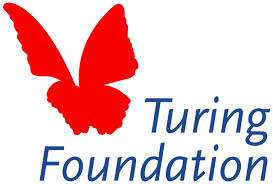
Full project title:
Contribution of Drug-resistance and M. lepromatosis to persistent leprosy transmission in parts of Africa
Project coordination
Institute of Tropical Medicine Antwerp
Partners
Damien Foundation
Centre Pasteur du Cameroun
Noguchi Memorial Institute for Medical Research
Colorado State Unversity
Institut National de la Recherche Biomédicale (INRB)
Aim: This cross-sectional observational study aims to test whether drug resistance and M. lepromatosis infections contribute to transmission of leprosy in four African countries.
Final project summary
Leprosy is a disease that has affected people for thousands of years. It can cause skin sores, nerve damage, and other complications. Although it is now rare in most parts of the world, there are still thousands of patients every year, especially in developing countries. Despite being the oldest infectious disease known to humans, the disease is still not well understood. Therefore, it is of utmost importance to examine the genetic information of the bacteria causing leprosy.
To understand why the number of new patients diagnosed each year is not declining in the African region, the researcg team will confirm that the bacteria causing the disease are present in the patient. Whether the bacteria are resistant to the drugs that are used to kill them will be investigated. This means that even if someone is taking medication, the bacteria can continue to spread within the person and cause damage to the body, but can also spread to other people.
In addition to drug resistance, there is also a type of bacteria called Mycobacterium lepromatosis that can also cause leprosy in addition to Mycobacterium leprae. This bacterium was found in people with leprosy in Mexico.
To better understand how leprosy is spreading and how we can improve treatment, we will conduct the study in four African countries: Ghana, Burundi, Cameroon, and the Democratic Republic of Congo. The researchers will work with leprosy patients in these countries and ask them to provide small samples of skin from the affected areas.
Using these skin samples, the researchers will look for specific known markers in the leprosy bacteria. These known markers can tell researchers if the bacteria are resistant to drugs or if they are the type of bacteria Mycobacterium leprae or Mycobacterium lepromatosis. Additionally, the researchers closely examine the genetic information of the bacteria to find any new (previously unseen) changes that might make them resistant to drugs. This is important because it helps us keep track of how these bacteria are changing and becoming resistant to the medicines we use to treat them. The researchers will also compare their results with those from other labs to make sure that they are getting accurate information, which is called an external quality control system.
By doing all of this, it is aimed to learn more about how leprosy is spreading in these countries and how it can be better treated it in the future. They researchers will also work with local healthcare providers to share their findings and help improve leprosy treatment in these communities.
